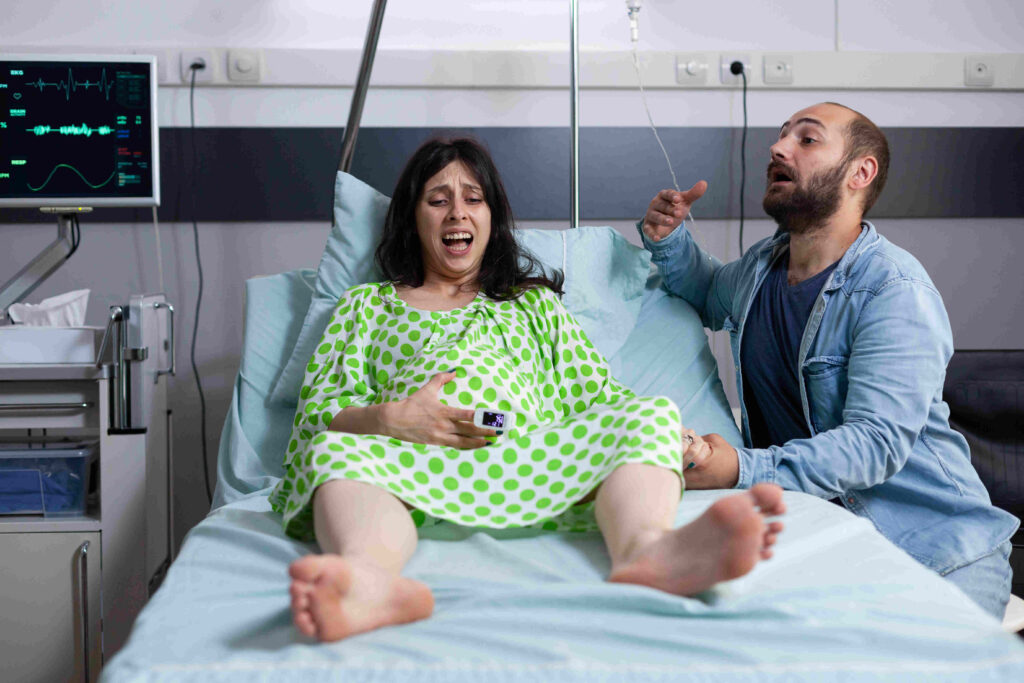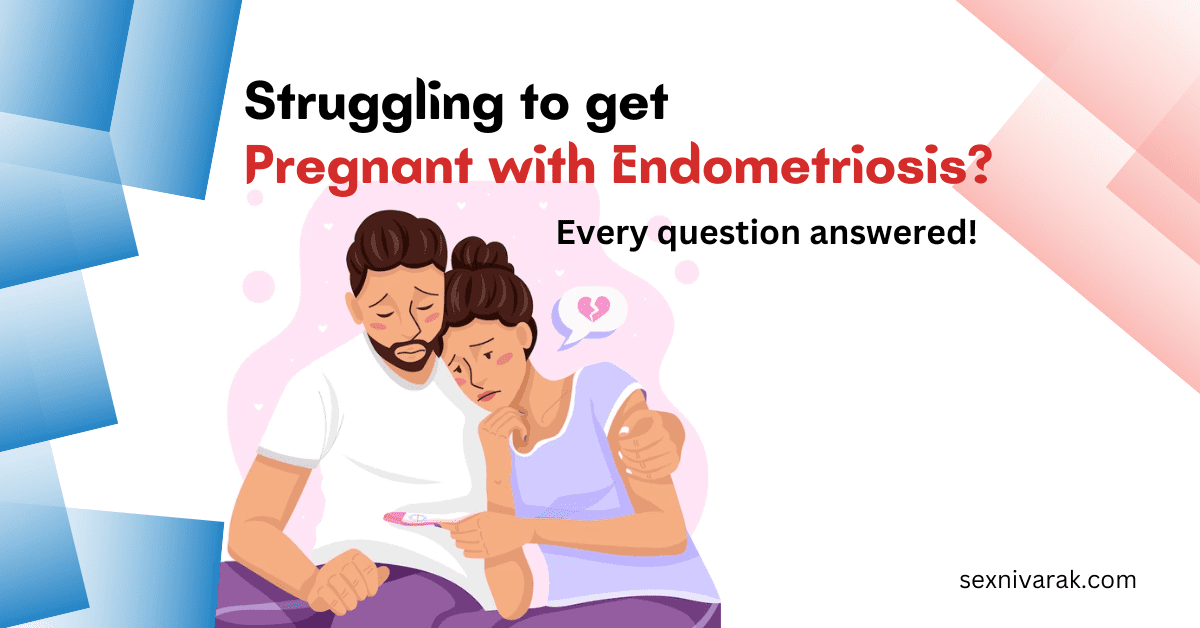Endometriosis is a chronic, painful condition in which the tissue that makes up the uterine lining (endometrium) grows outside the uterus, and pregnancy with endometriosis could be tough for some.
The endometrium tissue can grow on the ovaries, fallopian tubes, and other organs in the pelvic area. Depending on where it grows, it can cause pain, infertility, and other symptoms.
Data shows that up to 30% to 50% of women with endometriosis may experience infertility.
This tissue has the potential to irritate nearby structures, leading to pain and adhesions (scar tissue) on the organs it touches. As a result, this tissue can significantly impair the functioning of affected organs.
How to Diagnose Pregnancy with Endometriosis?

Many endometriosis patients experience pelvic or abdominal pain, especially during or after sex or menstruation. Some females show no symptoms. It may be challenging to conceive when you have endometriosis.
Endometriosis can sometimes form a cyst inside your ovary (endometrioma). Unlike other endometriotic tissue, this can usually be visible on ultrasound. It can only be diagnosed through a surgical operation known as laparoscopy.
Symptoms
- Painful periods
- Nausea and abdominal bloating
- Pain during or after sexual intercourse
- Pain while urinating
- Anxiety or depression
- Fatigue
How does endometriosis affect conceiving?
Pregnancy with endometriosis condition could be very challenging for women who want to conceive naturally and easily.
Endometriosis can cause significant damage to the reproductive organs, leading to fertility issues and difficulty in conceiving. It can cause scarring and blockages in the fallopian tubes and uterus.
It makes it more difficult for the sperm to reach the egg and for the fertilized egg to implant into the uterus as a result. Scarring and inflammation can also lead to damage to the ovaries, reducing the number of eggs available for fertilization.
For example, the scarring caused by endometriosis can create a physical barrier between the uterus and fallopian tubes, preventing pregnancy with endometriosis.
Endometriosis and Infertility
Endometriosis can impact fertility in many ways, such as by influencing the pelvic anatomy, and adhesions, scarring the fallopian tubes, disrupting the functioning of the immune system, inflaming the pelvic structures, shifting the hormonal environment of the eggs, hampering pregnancy implantation, and affecting egg quality.
The moment you undergo surgery, your healthcare professional may evaluate the amount, position, and complexity of endometriosis and assign you a “score.”
Depending on this score, your endometriosis will be classified as minimal (Stage 1), mild (Stage 2), moderate (Stage 3), or severe (Stage 4). The effectiveness of pregnancies goes hand in hand with this scoring system.
Women with severe (Stage 4) endometriosis find conceiving very difficult. This stage results in damaged ovaries, serious scarring, and blocked fallopian tubes. Women with extreme endometriosis conditions often need high-tech fertility treatment.

Risk Factors with Endometriosis
Risk factors that concern the condition of endometriosis are:
- Never giving birth
- Starting your period at an early age
- Going through menopause at an older age
- Low body mass index
- Short menstrual cycles — for example, less than 27 days
- Heavy bleeding during periods that last over seven days
- Having more increased levels of estrogen in your body or greater lifetime exposure to estrogen your body produces.
- One or more relatives of the family (mother, aunt, or sister) with endometriosis
- Any medical condition that controls the passage of blood from the body during menstrual periods
- Infections of the reproductive tract
Endometriosis Treatment
Get in touch with your doctor if you are experiencing symptoms of endometriosis, even if you haven’t been diagnosed. An accurate diagnosis and treatment plan are vital to successfully managing pregnancy with endometriosis and its symptoms.
A fertility specialist can consult with your doctor to assess the severity of your endometriosis symptoms and the factors that are contributing to your fertility issues. Endometriosis-related fertility treatments include:
- In Vitro Fertilization (IVF)
- Freezing eggs
- Medications like Clomiphene (producing 2-3 mature eggs)
- Superovulation and intrauterine insemination (SO-IUI)


